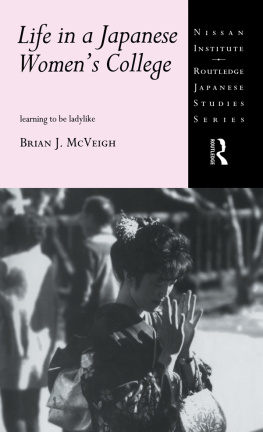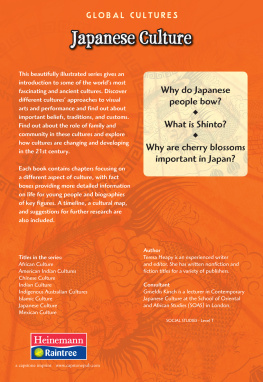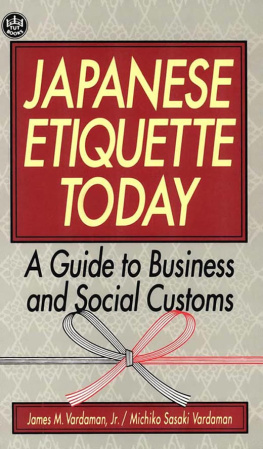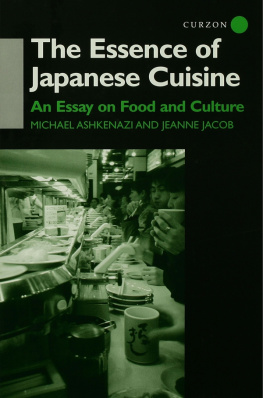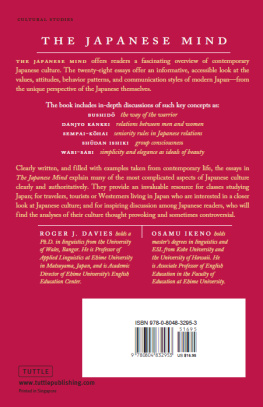
Social Theory and Japanese Experience
Japanese Studies
General Editor: Yoshio Sugimoto
Images of Japanese Society: Ross E. Mouer and Yoshio Sugimoto
An Intellectual History of Wartime Japan: Shunsuke Tsurumi
A Cultural History of Post-war Japan: Shunsuke Tsurumi
Beyond Computopia: Tessa Morris-Suzuki Constructs for Understanding Japan: Yoshio Sugimoto and Ross E. Mouer
Japanese Models of Conflict Resolution: S. N. Eisenstadt and Eyal Ben-Ari
Changing Japanese Suburbia: Eyal Ben-Ari
The Rise of the Japanese Corporate System: Koji Matsumoto
Science, Technology and Society in Post-war Japan: Shigeru Nakayama
Group Psychology of the Japanese in Wartime: Toshio Iritani
Enterprise Unionism in Japan: Hirosuke Kawanishi
Social Psychology of Modem Japan: Munesuke Mita
The Origin of Ethnography in Japan: Minoru Kawada
Social Stratification in Contemporary Japan: Kenji Kosaka
Sociology and Society of Japan: Nozomu Kawamura
Diversity in Japanese Culture and Language: John C. Maher and Gaynor Macdonald
Difference and Modernity: Social Theory and Contemporary Japanese Society: John Clammer
Kanji Politics: Nanette Gottlieb
Migrant Workers in Japan: Hiroshi Komai
Japanese Encounters with Postmodemity:
Johann P. Arnason and Yoshio Sugimoto
Hibakusha Cinema: Hiroshima, Nagasaki and the Nuclear Image in Japanese Film: Mick Broderick
Foreign Workers and Law Enforcement in Japan: Wolfgang Herbert
Social Theory and Japanese Experience: Johann P. Arnason
First published in 1997 by
Kegan Paul International
This edition first published in 2010 by
Routledge
2 Park Square, Milton Park, Abingdon, Oxon, OX14 4RN
Simultaneously published in the USA and Canada
by Routledge
711 Third Avenue, New York, NY 10017
Routledge is an imprint of the Taylor & Francis Group, an in forma business
Johann P. Arnason 1997
All rights reserved. No part of this book may be reprinted or reproduced or utilised in any form or by any electronic, mechanical, or other means, now known or hereafter invented, including photocopying and recording, or in any information storage or retrieval system, without permission in writing from the publishers.
British Library Cataloguing in Publication Data
A catalogue record for this book is available from the British Library
ISBN 10: 0-7103-0485-4 (hbk)
ISBN 13: 978-0-7103-0485-8 (hbk)
Publishers Note
The publisher has gone to great lengths to ensure the quality of this reprint but points out that some imperfections in the original copies may be apparent. The publisher has made every effort to contact original copyright holders and would welcome correspondence from those they have been unable to trace.
For Isao Onoda and Yasuo Ishii with thanks for a very effective introduction to Japan
Contents
Japanese names are given in the proper order (family name first and given name second), except for references where they follow Western conventions. Because of technical problems (and in agreement with the publisher), I have dispensed with the macrons frequently used to indicate long vowels in Japanese words; this is unlikely to cause any misunderstandings.
The following abbreviations are used in the footnotes.
| AA | Acta Asiatica |
| AHR | American Historical Review |
| AJS | American Journal of Sociology |
| ASR | American Sociological Review |
| BEFEO | Bulletin de lEcole Franaise de VExtrme-Orient |
| BJOAF | Bochumer Jahrbuch filr Ostasienforschung |
| BJS | British Journal of Sociology |
| CSSH | Comparative Studies in Society and History |
| HJAS | Harvard Journal of Asiatic Studies |
| JAS | Journal of Asiatic Studies |
| JJRS | Japanese Journal of Religious Studies |
| JJS | Journal of Japanese Studies |
| MN | Monumenta Nipponica |
| OE | Oriens Extremus |
| TASJ | Transactions of the Asiatic Society of Japan |
This book is addressed to two kinds of readers: to social theorists, on the grounds that the Japanese experience is or should be of particular relevance to their problems, and to scholars working on Japanese history, culture and society, in the hope that the theoretical interpretations outlined below may be of some interest to them. Some parts of the discussion will seem less relevant to one side than to the other, but I have tried to strike a viable balance between them.
It should be noted that the book was written by an outsider to Japanese studies; I do not read Japanese, and the work on this project has certainly made me more conscious of the linguistic barrier. But in view of the limited contact between social theory and Japanese studies, there is work to be done on both sides, and theoretical contributions will be more useful if they are linked to comparative history. The present attempt to follow that line of inquiry builds on earlier publications, much more limited in scope but similar in intent. My interest in Japan goes back a long time, and I hope to be able to pursue it further.
This book has been in the making for a long time, and it is impossible to name all those who have been of help in one way or another. Thanks are due, first and foremost, to the Japan specialists who have shown interest in my project, especially to Yoshio Sugimoto. without whose encouragement the book would hardly have taken shape, and to Herman Ooms, whose constructive response to an early attempt was particularly welcome.
Among theorists with interests in the same area, Shmuel N. Eisenstadt has been the most important discussion partner. I am grateful for having had access to his work in progress; what I have learnt from it, and where my approach differs from his, will become clearer as the argument unfolds.
A sabbatical spent in Japan in 1991-92 was essential to further work on the book. In that connection, thanks are due to La Trobe University and Tokyo Metropolitan University; to Kawamura Nozomu, whose aid in organizing my stay in Japan was invaluable; and to Kato Tetsuro, Mishima Kenichi, and Tokunaga Makoto, who helped in various ways.
I also wish to thank La Trobe University and the Australian Research Council for a research grant which enabled me to devote more time to the book, and the Japan Foundation for publication assistance; I am grateful to Irmela Hijiya-Kirschnereit for her support in that connection. Special thanks are due to Kaori OConnor for her editorial patience and flexibility.
Colleagues in the School of Sociology and Anthropology at La Trobe University, as well as the staff of the Borchardt Library, have been helpful in various ways. I wish to thank Bronwyn Bardsley, Merle Parker, Beth Robertson and Elaine Young for their patient and efficient processing of an old-fashioned manuscript.


